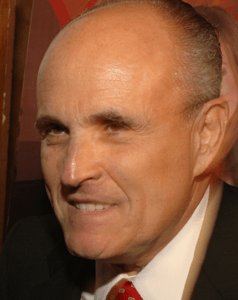

 No one anticipated the nature and scale of the attacks on the World Trade Center on Sept. 11, 2001, but the immediate response nonetheless drew upon months and years of careful planning and leadership.
No one anticipated the nature and scale of the attacks on the World Trade Center on Sept. 11, 2001, but the immediate response nonetheless drew upon months and years of careful planning and leadership.
That was a key observation of former New York City Mayor Rudolph Giuliani in his Oct. 16 address on leadership and crisis management to the PCI annual meeting in Chicago.
Giuliani broke down six essential characteristics effective leaders should have in a crisis.
First, “you have to have a set of goals, a set of beliefs. You have to know what you want to accomplish,” he said. “You can’t lead people unless you know where you want to lead them. People are inspired when they’re working for higher goals, when they’re working to accomplish exceptional things.”
Secondly, he said, a leader has to be an optimist and inspire belief that a problem can be reduced or mitigated, even if it cannot be eliminated entirely.
That optimism must be rooted in the third key characteristic of leadership: courage, particularly a willingness to take risks and assume responsibility for mistakes that result.
Yet even those qualities are unlikely to produce the response you want unless they have been tested and honed through the practice of “relentless preparation,” Giuliani said in emphasizing his fourth crisis leadership tip.
“A good leader is continually training his people for the inevitable crisis,” he said. For every contingency, he said, “you have to have a well-established plan you can execute almost with your eyes closed.”
“There’s a direct correlation between the effectiveness of your emergency response and the amount of practice.”
Of course, no crisis will play out exactly as you’ve planned for it. According to Giuliani, the Sept. 11 attacks did not fit the profile of any of the emergencies New York City had planned for, and city leaders knew immediately that they were facing an unprecedented situation.
Nonetheless, Giuliani recalled, he and other city officials were readily prepared to implement measures identified in various emergency plans. These included establishing air cover for the city, securing other potential targets, arranging the evacuation of Lower Manhattan, and re-routing traffic from the stricken area.
“Everything we were deciding was previously part of a plan,” he told attendees. “It wasn’t as if we were making it up as we went along.”
Good plans require good people, Giuliani added, citing teamwork as his fifth leadership principle. One key to creating a good team, he said, is for a leader to be forthright in identifying his or her weaknesses and shortcomings, and to find people whose strengths balance those shortcomings.
Finally, he said, communication is key—not simply clear communication of directives but genuine empathy with people at their hardest times, so they know you care and come to share your commitment. He summed it up by saying: “Funerals are necessary, weddings discretionary.”
Taking Risks
In addressing the principle of courage, Giuliani shared his reflections on the contrasting dynamics that shape behavior in the private and public sectors.
To be courageous, he said, “you have to be willing to take a risk of failure. If you don’t take a risk of failure, you can never do anything different. You can actually never solve a problem.
In government, however, Giuliani said that “there’s no reward for success; there’s just a penalty for failure.”
“If you work for any large bureaucracy, particularly a regulatory bureaucracy, and come up with a solution to a problem, no one is going to notice,” he said. “On the other hand, if you make a mistake, [people will] know immediately it was you, and you’re going to be ruined.
“[This] is why, in a bureaucracy, there is such tremendous risk aversion, there’s such a tremendous fear of being the person on the hook for a particular decision. That mentality prevents innovation. That mentality makes it impossible to do anything different.”
By contrast, “in the private sector, you have a natural reward system. You can reward people for doing extraordinary things or taking extraordinary risks.” As a result, private companies can be more tolerant toward the types of mistakes that help identify how to solve problems.
“That’s why leadership is so important,” he said. “A leader has to set up a reward system for success. A leader has to know how to generate that in an organization, particularly one that has difficulty innovating.”